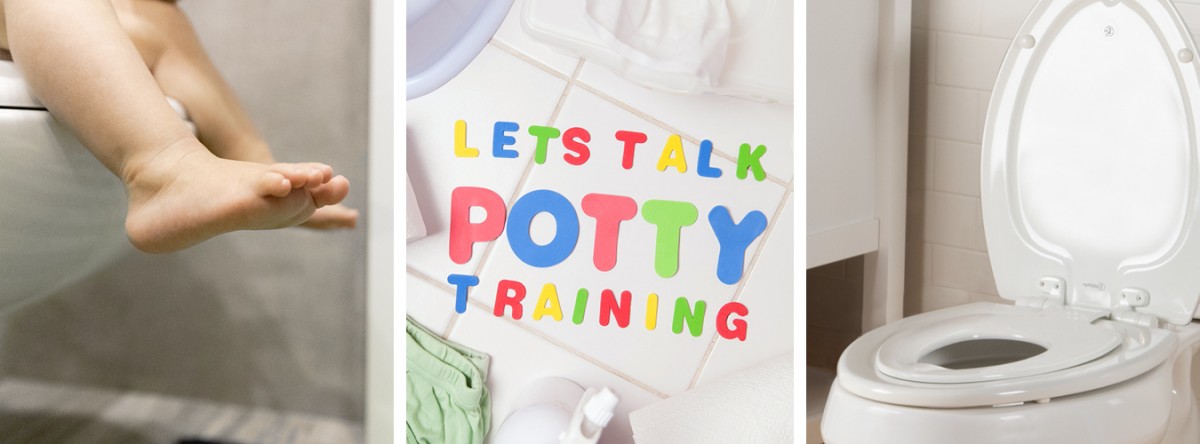Help Your Child Learn Potty Training Words

An important goal of potty training is to teach your child the language they need to effectively communicate their needs to you and to others who are their caregivers.
The more natural these words are for you to say, the more comfortable your child will feel using them. For this reason, if your child has a caregiver or goes to daycare, it’s helpful to talk with them to learn what language they’ll use during potty training. If the words are appropriate for your family, include them into the potty training language you teach your child.
Start Early
You can begin teaching your child potty training words long before potty training actually begins. It’s true! As you change your toddler’s diaper, say things like, “I see you went potty and your diaper is wet. Let’s get you dry again.” Or, “Look, you went poop. I’ll clean you up so you can keep playing.”
Pointing out the obvious may seem, well, obvious, but it provides a connection between the action (a wet diaper) and the result (time to get dry again).
If your child is ready for potty training and you haven’t yet begun teaching him potty training words, don’t worry! Children are quick learners and will easily adapt to the new vocabulary.
What to Say When Potty Training
Here are a few toilet-related words to begin!
Child-friendly words for urine and urination:
Pee
Potty
Number One
Tinkle
Child-friendly words for defecation:
BM (bowel movement)
Number Two
Poo
Poop
Child-friendly words for the bathroom:
Bathroom
Little Girls’/Boys’ Room
Restroom
Toilet
Washroom
The tone you use while saying these words is just as important as the words themselves. Don’t use a negative tone and words like “stinky” or “gross” to describe your child’s poopy diaper. Your toddler has no control over the outcome of her bowels and shouldn’t feel embarrassed by something her body does naturally.
Use a light, encouraging tone that shows you’re comfortable with the process (even if you might feel otherwise!) and, in turn, your child will feel comfortable talking to you about it.
Important Product Partners
As you prepare for potty training, having the right tools in place makes the process easier! Our NextStep2® Child/Adult Potty Seat lets you skip the hassle – and mess! – of a traditional potty chair. No more emptying a cup or cleaning up afterward. Simply flush and move on with your day!
The NextStep2 features a plastic potty seat that’s sized just right, giving your toddler confidence when he uses the toilet. It’s a seat sized for the whole family, too, because when potty training is finished, all you need to do is remove the plastic potty seat, leaving the adult ring fully useable.
If Potty Talk Turns Into Potty Mouth…
It happens to every parent: Your child learns new words and uses them appropriately, but after a few hours playing with his friends, suddenly “poop” becomes “poopy head.” There’s shock value and a sense of power that your toddler can use these words to get your attention.
What to do?
Try your best not to overreact. Your shock or scowl only serves as fuel for your toddler’s energy. Instead, redirect your toddler’s attention or use the moment as an opportunity to gently teach him that certain language isn't appropriate.
The sooner you move on, the sooner your toddler will, too.
Check out our library of potty training articles for plenty of helpful information!